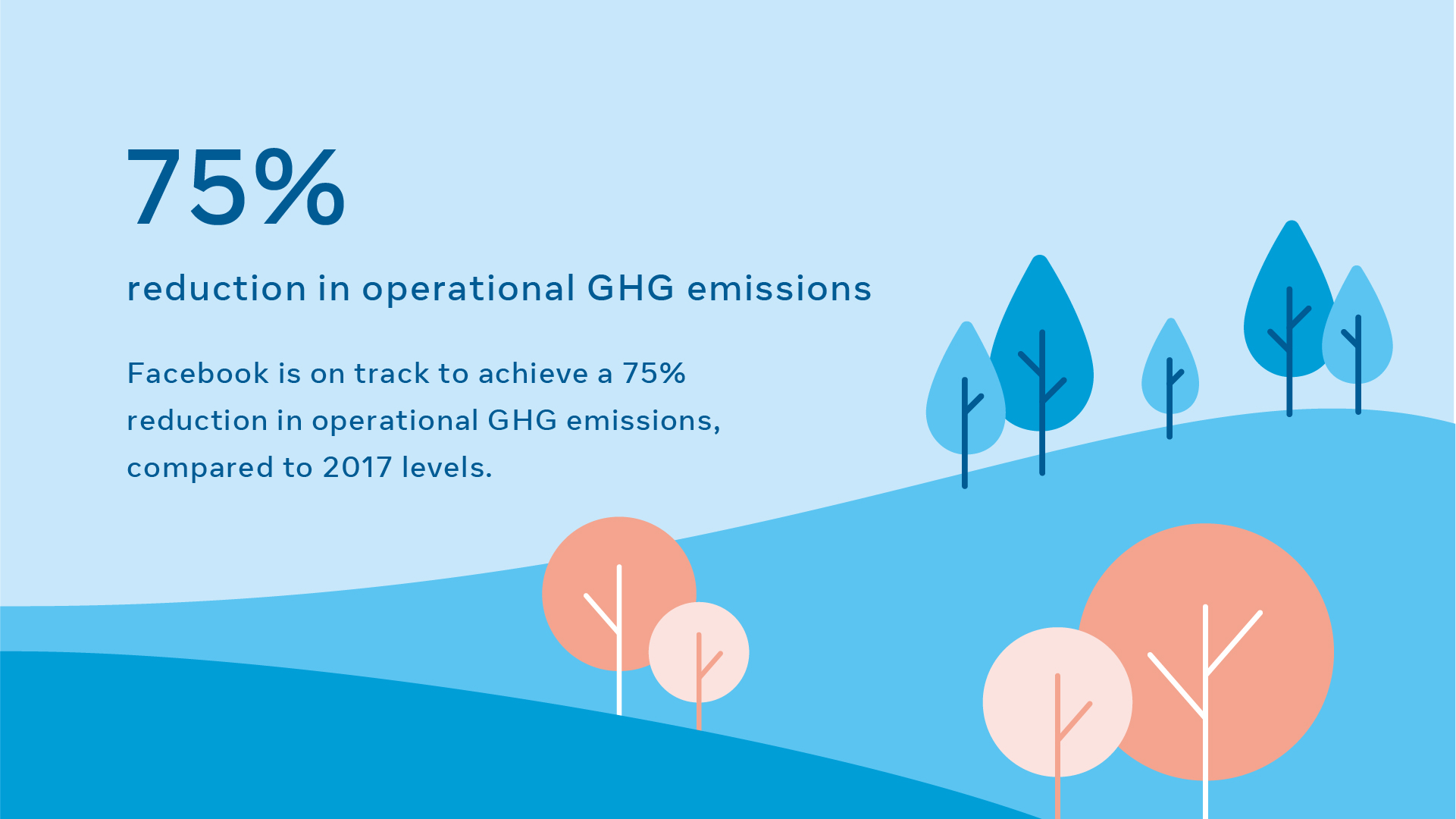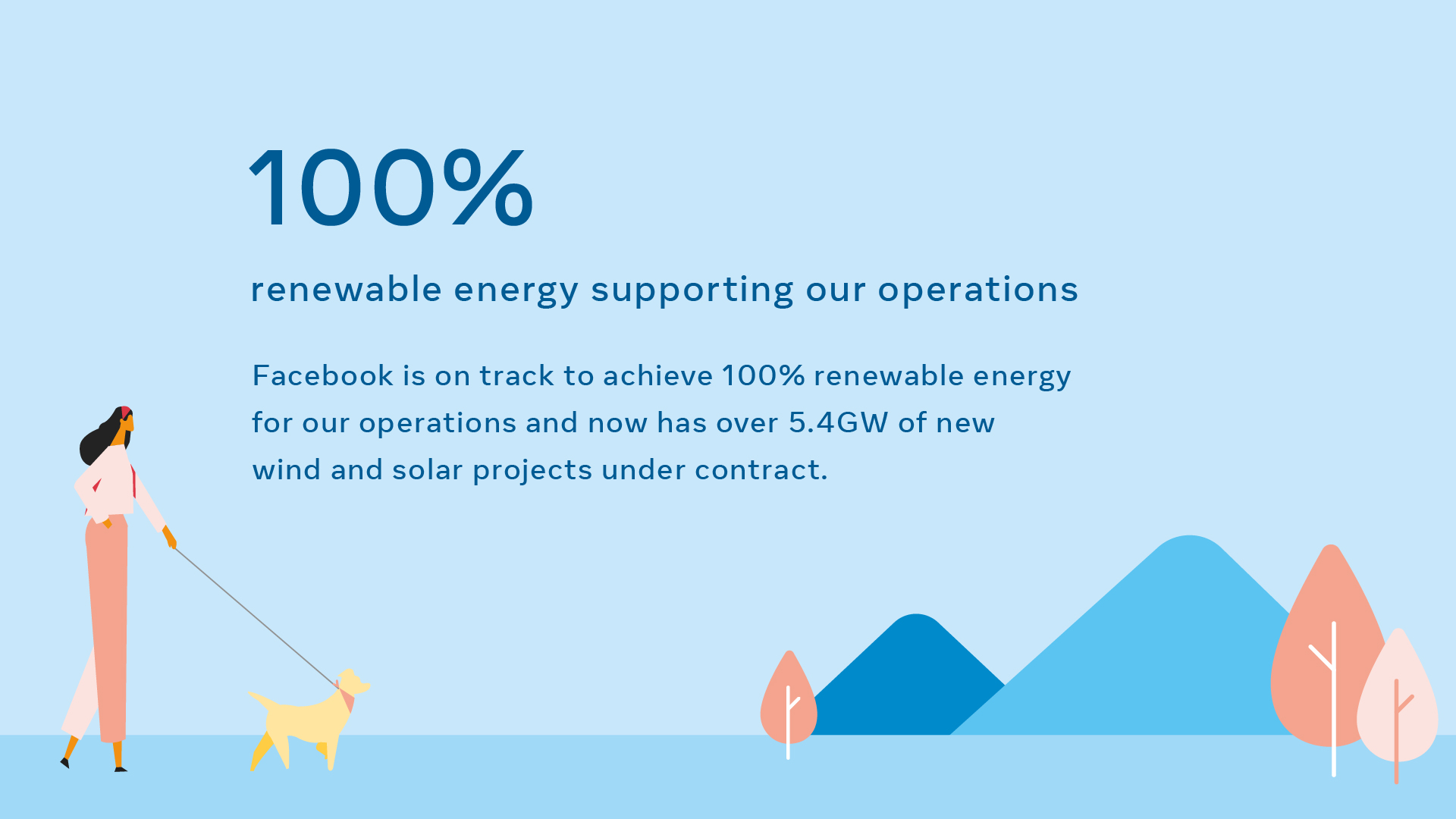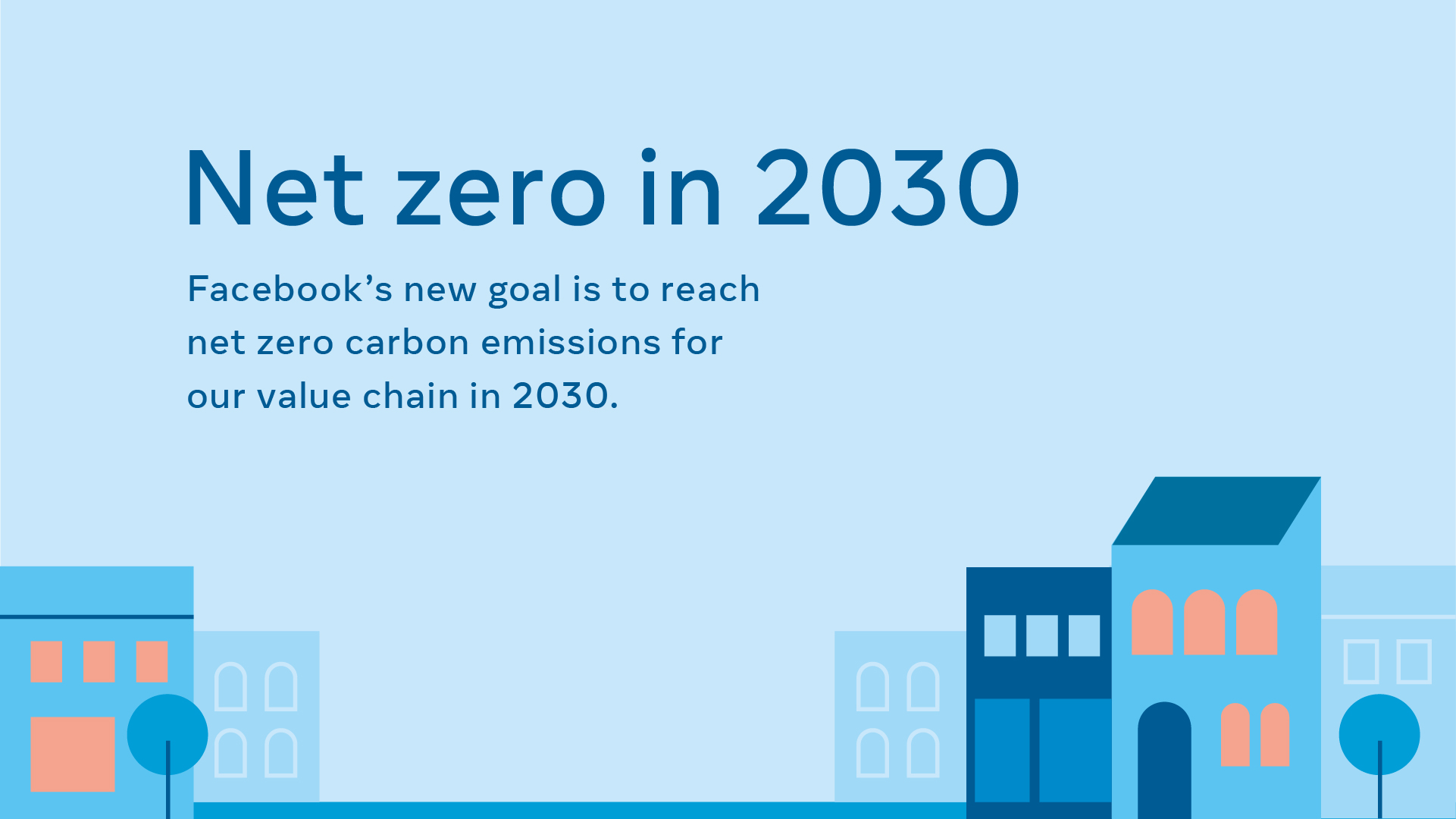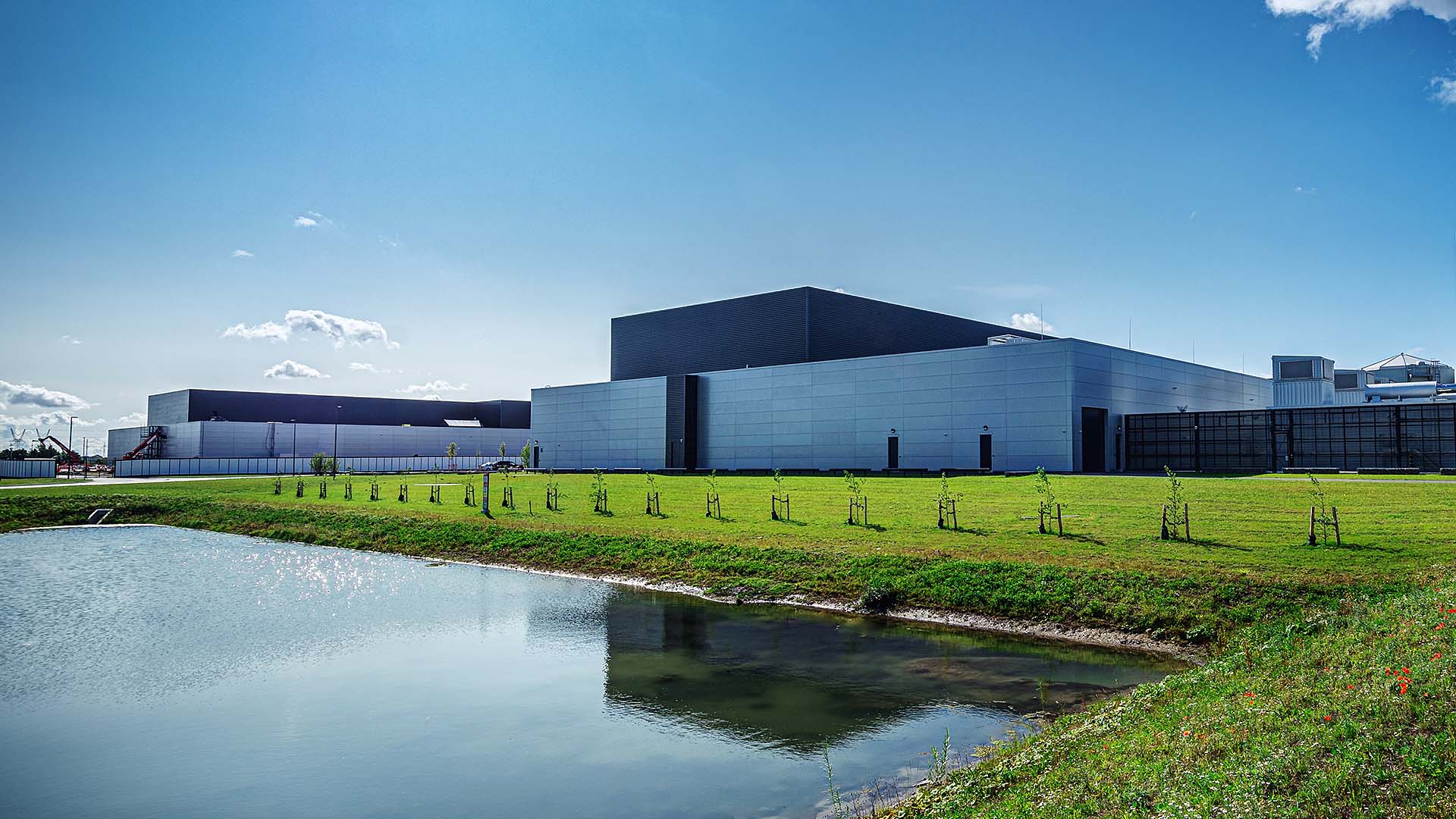In 2018, we set an ambitious goal of achieving a 75 percent absolute reduction in operational greenhouse gas (GHG) emissions and to support our global operations with 100 percent renewable energy by the end of 2020. On both counts, we are well on track: These commitments have spurred the construction of over 5,400 megawatts (MW) of new solar and wind power capacity around the world, and reduced our emissions by more than 2.6 million metric tons of carbon dioxide equivalent (CO2e) over the past three years. Now that we are near completion of our initial goals, we are looking ahead and ramping up our efforts to fight climate change for another decade. We have committed to reaching net zero emissions for our value chain in 2030, with renewable energy, hyperefficient operations, supplier engagement, and carbon removal solutions as the cornerstones of this effort.


Climate change is accelerating. Scientists continue to record temperatures and levels of atmospheric CO2 that are higher than anything seen in human history. The scientific community is also confident that temperatures will continue to rise in the decades to come, largely because of the CO2 produced by human activities. This means that glaciers will continue to shrink, sea levels will keep rising, and heat waves will be hotter and longer. Climate change presents risks for human health, threats to plant and animal species, and costs for society and economies — especially in developing countries.
We recognize that the situation is urgent. In fact, we believe that the next 10 years will be the defining decade in the world’s efforts to dramatically reduce GHG emissions, limit global warming, and mitigate the impact of climate change. This is why we are committed to tackling climate change through our global operations, value chain, and beyond. We are taking a holistic approach to decarbonization and sustainability that goes well beyond our own business. We want to enable carbon-removal solutions for the broader industry and harness the strength of our platforms to drive climate action with science-based goals. These efforts include the launch of our new Climate Science Information Center, a tool to provide reliable, science-based information and inspire more people to take action.
Achieving net zero
As we reach our 2020 goals, we want to focus next on impact beyond our operations. We are acutely aware that global GHG emissions will need to be net zero by 2050, which is why we have committed to reaching that target 20 years earlier, in 2030. We have also committed to the Science Based Targets initiative (SBTi), and will align our program to reduce our GHG emissions in line with the latest science on what is necessary to meet the goals of the Paris Agreement and limit global warming to 1.5°C above pre-industrial levels.

We will be tracking and reducing three types of GHG emissions on our journey to net zero: Scope 1, or direct emissions from sources we own and control; Scope 2, which are indirect emissions that result from the energy that we purchase from utilities; and Scope 3, which are emissions from our value chain, including our supply chain and factors like business travel and employee commuting.
In 2020 and beyond, Facebook’s global operations (Scope 1 and Scope 2) will achieve net zero emissions and be 100 percent supported by renewable energy. Supporting our global operations with 100 percent renewable energy is important for achieving net zero emissions. That’s why, with each new data center we build, we add renewable energy to the grid. The 5,400 MW of new solar and wind capacity that Facebook has contracted for since 2013 could power more than 1.5 million U.S. households. We also seek to ensure that all of that renewable power lives on the same electrical grid as our data centers. In 2019, we achieved 86 percent renewable energy, and we were recognized as the No. 1 corporate buyer of renewable energy in the United States by the Renewable Energy Buyers Alliance (REBA) and No. 2 in the world by Bloomberg NEF.
Through our procurement efforts, we are working with utilities to create new green tariffs, which enable businesses to purchase clean energy. We also advocate for decarbonization as a founding member of REBA and as a member of RE100, a global initiative of influential businesses committed to 100 percent renewable electricity. Our renewable energy program also supports other important co-benefits. In 2019, we estimate that we saved more than 3 billion gallons of water by generating energy from our solar and wind projects rather than sourcing energy from the standard utility energy mix. In addition, thanks to our highly efficient cooling designs, our data centers saved more than 2 billion gallons of water worldwide in 2019.
We know that water stewardship strengthens climate resilience, which is why we support water restoration projects that promote long-term sustainability of local watersheds. By the end of 2020, we will have contracted full water restoration volumes at two-thirds of our data center locations with high water stress. As a result of our efforts, we have helped restore landscapes and rivers that increase wetlands, fish, and wildlife habitat, and riparian vegetation, and help protect endangered species.
We are committing to reaching net zero GHG emissions across our value chain (scope 3) in 2030. We will continue to reduce our Scope 3 emissions through the efficient design, operation, and construction of our offices and data centers. For example, the hyperefficient servers we’ve contributed to the Open Compute Project can operate in higher temperature environments than traditional equipment, which lowers the amount of energy needed to keep our servers cool and makes it possible for our data centers to use outdoor air for cooling, instead of energy-intensive air-conditioning units.
We will also incorporate circular economy principles (based on designing out waste and pollution, keeping products and materials in use, and regenerating natural systems) into the life cycle of our buildings, server hardware, and consumer products like Oculus and Portal. This includes evaluating materials with lower carbon impact, building repairability and recyclability principles into design processes, and continuing to ensure responsible end-of-life management.
These efforts to decarbonize may have begun at home, but we will extend them along the entire value chain over the next decade. Through our Responsible Supply Chain program, we partner with suppliers to help them build capacity for their own data reporting and to support on-site energy assessments that identify opportunities for energy reduction and improved environmental performance. We also work with key suppliers to help them set their own science-based targets and implement accurate GHG emissions reporting.
We acknowledge that achieving net zero emissions in our value chain in 2030 is a challenging goal. We will support projects that remove carbon equal to the emissions we are not able to reduce or eliminate by our 2030 goal.
Driving climate action
We are partnering with nonprofits, businesses, and civil society to help share information about the impact of climate change and harness the strength of our platforms to drive science-based climate action. The Climate Science Information Center will feature facts, figures, and data from the Intergovernmental Panel on Climate Change (IPCC) and their global network of climate science partners, including the UN Environment Programme (UNEP), The National Oceanic and Atmospheric Administration (NOAA), World Meteorological Organization (WMO), The Met Office and others.
We are proud of the work we have done and know there is a lot more work to do. We recognize the urgency of climate change. We know the next 10 years will be the defining time for reduction in GHG emissions and that we have a role to play in this effort — both as a platform that connects people to information and as a global company that supports climate action. To learn more about our progress, visit sustainability.fb.com and the Climate Science Information Center to stay abreast of the latest climate research.










